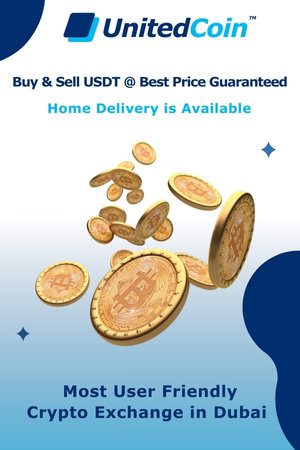Tether (USDT) is a type of cryptocurrency known as a stablecoin. It aims to keep cryptocurrency valuations stable, as opposed to the wide fluctuations seen in the prices of other cryptocurrencies like Bitcoin and Ethereum. USDT is pegged to the US dollar, meaning that each unit of Tether is intended to be equivalent to one US dollar, held in reserve in a mix of cash and short-term US Treasury bonds. This feature makes USDT an appealing option for investors looking to avoid the extreme volatility of the cryptocurrency market.
Benefits of Using Tether USDT
Investing in Tether comes with several benefits. Primarily, it provides the stability of a traditional currency while maintaining the flexibility and speed of a cryptocurrency. This makes USDT a useful tool for trading and investment, as it can be used to buy other cryptocurrencies when their prices are favorable without needing to convert money back and forth from traditional currencies. It also serves as a safe haven during periods of significant cryptocurrency market volatility.
Legal Status of USDT in the Netherlands
Before diving into the buy of USDT in the Netherlands, it’s important to understand its legal framework. Cryptocurrency, including Tether, is generally legal in the Netherlands and is subject to the country’s progressive and comprehensive regulatory approach. The Dutch Authority for the Financial Markets (AFM) and De Nederlandsche Bank (DNB) regulate the sector, emphasizing anti-money laundering (AML) laws and know-your-customer (KYC) regulations. Investors need to ensure that they engage with platforms that comply with these regulations.
Choosing a Trading Platform
When buying USDT in the Netherlands, the first step is choosing a reliable trading platform or cryptocurrency exchange. There are several factors to consider:
- Regulatory Compliance: Make sure the platform adheres to local laws and regulations.
- Security: Look for platforms with strong security measures to protect your funds.
- Fees: Understand the fee structure for trading and withdrawals.
- User Experience: Consider platforms known for their ease of use and good customer support.
Recommended Platforms
- Binance: Known for its low fees and vast array of cryptocurrencies.
- Coinbase: Offers robust security features and a user-friendly interface.
- UnitedCoin.ae : Well-regarded for its competitive pricing.
Step-by-Step Guide to Buying USDT in the Netherlands
Step 1: Register on a Platform
Choose your preferred trading platform and create an account. During registration, you will be required to provide personal information and documents to fulfill KYC requirements. This could include a photo ID, proof of address, and possibly a verified method of payment.
Step 2: Fund Your Account
Once your account is set up and verified, the next step is to deposit funds. Most Dutch platforms allow you to fund your account with EUR via bank transfers, credit cards, or other online payment systems such as iDEAL.
Step 3: Buy USDT
After funding your account, navigate to the section of the platform where you can buy or trade crypto. Select USDT and specify the amount of EUR you want to spend or the amount of USDT you want to buy. Review the transaction details, including any fees that apply, and confirm your buy.
Secure Storage Options
After buying USDT, consider how you will store your cryptocurrency. While keeping it on the exchange is convenient for trading, using a private wallet offers increased security. Wallet options include:
- Hardware Wallets: Such as Ledger or Trezor, provide offline storage and backup.
- Software Wallets: These are more convenient for those accessing their funds more frequently.
Risks and Considerations
Investing in cryptocurrencies, including USDT, involves risks. The value of USDT is dependent on the stability and trust in the entity issuing it. Additionally, while USDT aims to be pegged to the dollar, there can be slight fluctuations, and the liquidity of USDT could be affected by market conditions or regulatory changes in the US.
Tax Implications of Trading USDT in the Netherlands
Understanding Crypto Taxation
In the Netherlands, cryptocurrencies like Tether are generally treated as assets for tax purposes. This means that any gains from trading or holding USDT could be subject to capital gains tax. However, the specifics can vary depending on individual circumstances and the amount of gain.
Reporting Obligations
It is important for traders and investors to keep detailed records of their cryptocurrency transactions, including dates, amounts, and prices at the time of each transaction. These records will be crucial for accurate tax reporting and ensuring compliance with Dutch tax regulations.
Conclusion
Buying Tether (USDT) in the Netherlands is relatively straightforward, thanks to the country’s clear regulations and the availability of several reliable cryptocurrency exchanges. By following this guide, you can navigate the process of buying USDT safely and efficiently. Always remember to stay informed about changes in cryptocurrency regulations and market conditions, as these can impact your investment.




